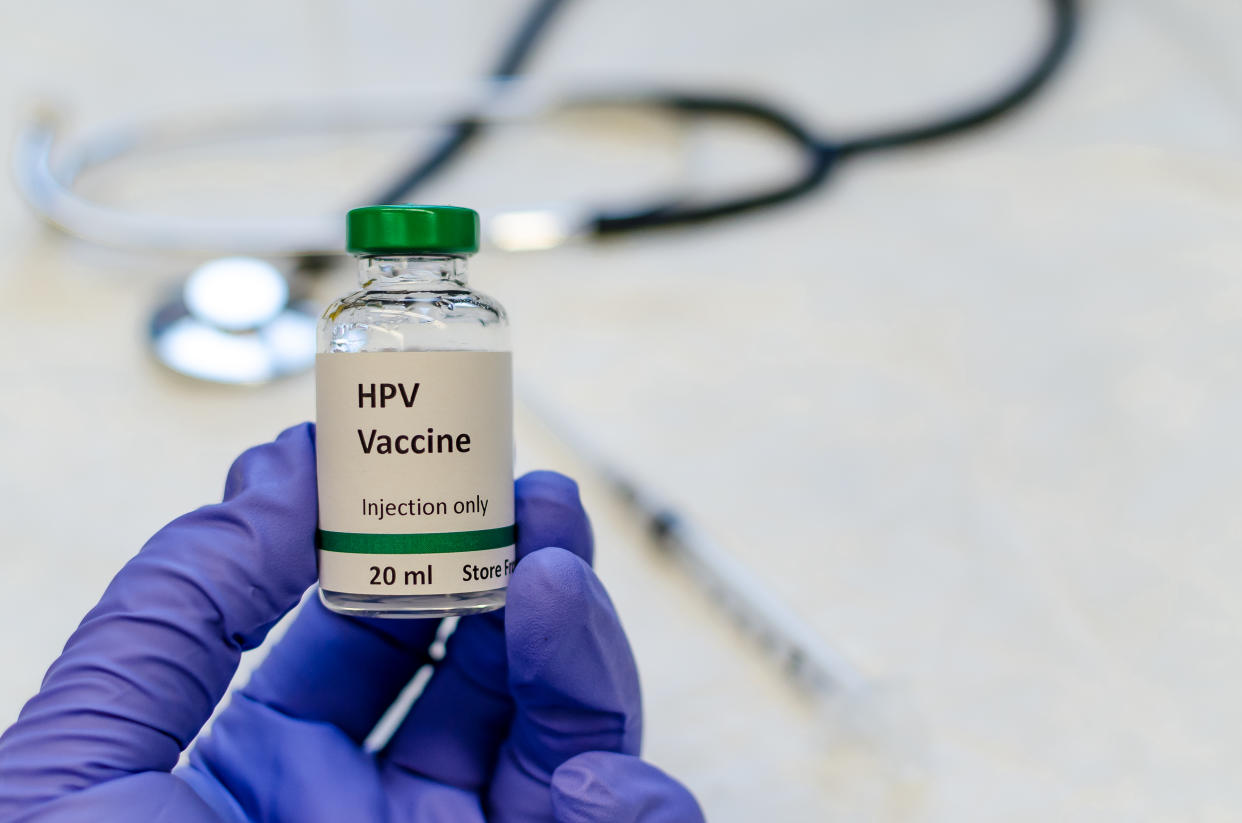HPV vaccine could 'eliminate cervical cancer in young women'

The HPV vaccine could almost eradicate the risk of cervical cancer in young women, research suggests.
Scientists from King’s College London believe the jab has the potential to prevent 99.8% of infections that would otherwise take hold over the next five-to-eight years.
They concluded that among newly-vaccinated young teenagers, the injection would “almost eliminate” the risk of cervical tumours.
READ MORE: One in 10 women think the HPV virus is “dirty”
“Our analysis finds the near perfect efficacy of HPV vaccination in randomised controlled trials is realised in real-world settings,” study author Professor Peter Sasieni said.
“These results imply the impact of HPV vaccination on preventing cervical cancer could be even greater than estimated previously.”
This comes after 65 studies with a total of around 60m people found the vaccine reduced HPV infections by 70% within one-to-four years.
At five-to-eight years, the risk was found to go down by 83%, results show.
READ MORE: DIY smear tests could be a 'game changer'
Off the back of this, the King’s scientists looked at the efficacy of the jab in girls from 14 countries.
They concluded a 92% efficacy after one-to-four years, rising to 99.8% between five and eight years.
“Our analysis underlines the importance of achieving high vaccine coverage,” co-author Dr Jack Cuzick from Queen Mary University of London, said.
“Public health practitioners in the UK can be rightly proud of the very high coverage achieved from which we should see near elimination of cervical cancer in young women over the next 15 years.
“Sadly, countries such as France in which only about 20% of girls have been vaccinated due to widespread distrust of the vaccine, will not.”
What is the HPV jab?
HPV is a common virus that infects four in five Brits at some point in their lives, according to Jo’s Cervical Cancer Trust.
Once infected, via sexual contact, most fight off the virus naturally.
Yet, of the more than 200 strains, 13 have been linked to cancer.
READ MORE: What it’s like to be diagnosed with cervical cancer in your 20s
Girls in year eight, aged 11-to-13, are therefore offered a jab that protects against two high-risk and two low-risk strains on the NHS.
Those under 25 who were offered the vaccine at school but turned it down are also entitled to a free injection.
The HPV jab is known to last 10 years, with studies suggesting it could be effective even longer.
Find out more about the vaccine at the Jo’s Cervical Cancer Trust website.


